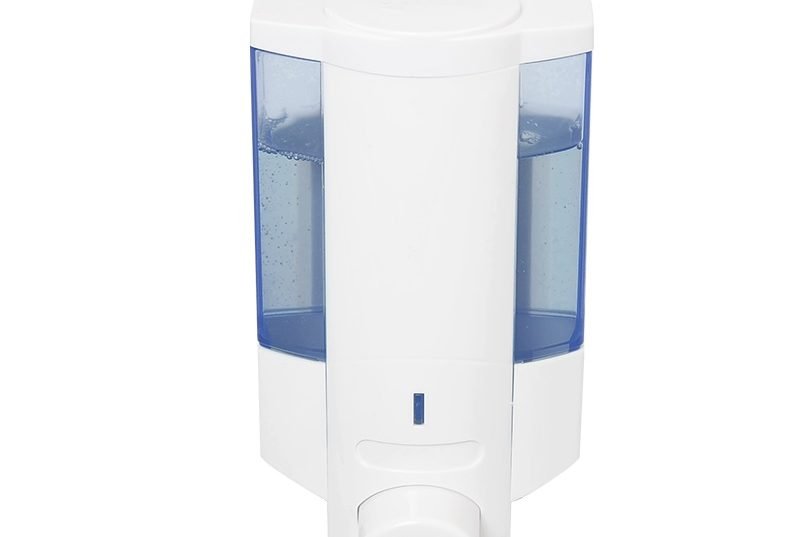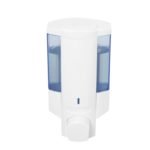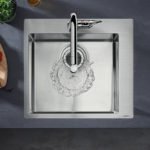Understanding Solar Power Inverters
Solar power inverters are essential components of a solar energy system. They play a crucial role in converting the direct current (DC) produced by solar panels into alternating current (AC), which is the form of electricity that most household appliances and the power grid utilize. This conversion process is vital, as it enables solar energy harnessed from sunlight to be effectively used for residential and commercial energy needs. Without an inverter, the electricity generated by solar panels would be unusable for everyday applications.
There are several types of solar power inverters available on the market, each designed to cater to different needs and configurations. The most common types include string inverters, microinverters, and power optimizers. String inverters are typically used in residential installations and connect multiple solar panels in series. They are known for their efficiency and cost-effectiveness, making them a popular choice for many homeowners. Microinverters, on the other hand, are attached to individual solar panels, allowing for better performance monitoring and optimization, especially in situations where shading may occur. Power optimizers function similarly, enhancing the performance of each panel while still using a traditional string inverter setup.
When selecting a solar power inverter, several key features should be considered, including efficiency ratings, power output, and compatibility with various solar panel systems. Efficiency ratings, often expressed as a percentage, indicate how well the inverter converts DC to AC without energy loss. A higher efficiency rating typically equates to better performance and increased energy savings over time. The inverter’s power output must also complement the total capacity of the solar panels, ensuring adequate energy production for household requirements. Furthermore, compatibility with existing or future solar panel systems is critical to guarantee seamless integration and performance.
Key Considerations Before Purchasing a Solar Inverter
When it comes to selecting the right solar power inverter, there are several important factors that must be taken into account to ensure optimal performance and reliability of your solar energy system. One of the primary considerations is the size and capacity of the inverter, which should be appropriately matched to your solar panel system. An undersized inverter may limit energy production, while an oversized one can lead to unnecessary costs and inefficiencies.
Another crucial aspect to evaluate is the inverter’s efficiency rating. Inverters generally convert direct current (DC) generated by solar panels into alternating current (AC) used in homes. A higher efficiency rating indicates better conversion capabilities, which translates to more usable energy from your solar installation. It is beneficial to compare inverter efficiencies as a key determinant in decision-making as this affects the overall energy yield and savings.
Warranties and customer support are other vital components to consider when purchasing a solar inverter. Reputable manufacturers often provide an extensive warranty period, reflecting their confidence in product durability and performance. Additionally, responsive customer service can greatly enhance your experience, particularly if any issues arise post-installation. Be sure to review warranty terms and customer feedback about support services to assess reliability.
Features such as remote monitoring capabilities can enhance your solar energy management. This functionality allows homeowners to track energy production and consumption in real-time, providing insights that can help optimize energy usage. Furthermore, certifications from recognized standards ensure that the inverter meets safety and quality benchmarks, contributing to long-term dependability.
Lastly, consider potential future upgrades and how the inverter aligns with your long-term energy goals. Matching the inverter with the specific needs of your solar panel system not only ensures effective performance but also accommodates any enhancements you may undertake in the future. Each of these factors plays a pivotal role in making an informed purchasing decision for your solar power inverter.
Top Solar Inverter Brands on the Market
Choosing the right solar inverter is crucial, as it impacts the overall efficiency and reliability of your solar power system. Several brands have emerged as leaders in the solar inverter market, known for their high-quality performance, innovation, and customer service. Below are some of the foremost names in the industry.
SolarEdge is highly regarded for its advanced technology and overall performance stability. Their inverters feature unique optimizers that maximize energy output from each panel, making them a favourite among homeowners looking for efficiency. SolarEdge also provides robust warranties and comprehensive monitoring features, catering well to both residential and commercial users.
Fronius is another prominent player, known for delivering reliable and durable solar inverters. Their products are especially valued for their high efficiency rates and longevity. Fronius offers a range of inverters suitable for different applications. The company emphasizes user-friendly monitoring tools and a good warranty structure, which enhances customer satisfaction.
Enphase Energy stands out with its microinverter technology, which allows for individual performance monitoring of each solar panel. This technology often leads to better energy harvesting, especially in shaded environments. Enphase has gained a strong reputation for customer service and product innovation, making it a reliable choice for many solar installations.
SMA Solar Technology is recognized for its expertise in the inverter market, having been a pioneer in solar technology for decades. SMA’s inverters are distinguished by their superb efficiency and extensive range of features, including versatile connectivity options. Their commitment to quality is reflected in their extensive warranty offerings.
Emerging brands such as Aurora Solar and Victron Energy are also gaining traction in the industry. Aurora focuses on user-friendly designs and efficient performance, while Victron is known for its cost-effectiveness and solid build quality, making them appealing alternatives, particularly for budget-conscious consumers.
When selecting a solar inverter, considering these well-established brands along with their newer counterparts ensures that you are investing in a product known for quality and reliability. Prioritize features that align with your specific energy needs and preferences, thereby enhancing your solar power experience.
Conclusion: Making an Informed Choice for Your Solar Power Needs
In considering the transition to solar energy, selecting the appropriate solar power inverter is a pivotal step that can significantly influence the efficiency and effectiveness of your solar system. Throughout this guide, we have outlined essential factors to consider, including the inverter types, their specifications, and the compatibility with your unique energy requirements. A thorough understanding of your energy consumption patterns, both present and projected future needs, will assist in identifying the most suitable inverter for your situation.
Researching different brands and models is crucial, as the market offers various options, each featuring unique capabilities and levels of performance. Factors such as warranty length, customer support services, and user reviews should be integral parts of your decision-making process. It’s wise to evaluate manufacturers with a solid track record and those that maintain positive reputations within the industry. This diligent approach not only enhances your understanding of the available choices but also assures you of making a sound investment.
Moreover, contemplating your future energy needs can forewarn you against potential shortfalls or mismatched equipment. As your energy consumption evolves, whether due to an increase in household occupancy or the incorporation of additional devices, a versatile inverter can adapt to those changes, providing long-term value and efficiency. Opting for a scalable solution today can prevent future complications and additional costs down the line.
Ultimately, your decision to adopt solar power not only contributes to energy savings but also benefits the environment. The right inverter is paramount in unlocking the substantial advantages of solar energy, empowering you to harness and utilize renewable resources effectively. Thus, making an informed choice in selecting your solar inverter lays the foundation for a successful energy solution that aligns with sustainability goals.












